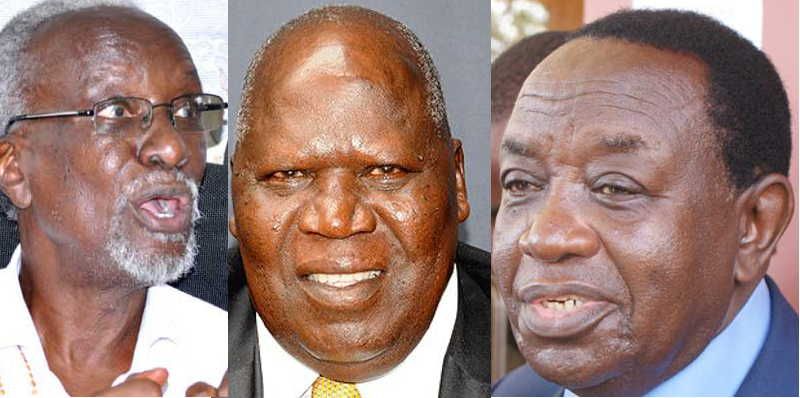
Can a government led by men with average age of 76 years transform a country?
I have had a very busy week, working on economic policies and strategies to transform our country. I never complain about working to make Uganda a better place, mainly because I know I have a long future ahead of me, but most importantly because I wouldn’t want to see my son live the life I have lived.
Uganda has come a long way. My generation has grown up surrounded by poverty, hunger, ill-health, malnutrition, and many other facets of a dysfunctional society. So I have every reason to work hard to ensure that these challenges end with my generation. Every morning I wake up with this ambition: to make a contribution towards the socio-economic transformation of Uganda. I even rarely get paid for much of the work I do. To me it’s a duty.
Whenever am teaching my students, I tell them that it is their duty to ensure that they are better off than their parents, and that they leave for next generation (their children and grandchildren) a society that is better than the one they inherited. Whenever I say these words to the young people I interact with almost on a daily basis and I see how enthusiastic they are, I get the assurance that the future of my country is bright.
Then I wake up, on a Monday morning, and the first news item to flash in my face is, “Kivejinja bounces back to Cabinet.” I know Mzee Kirunda very well. We have met several times; at mutual friends’ family functions, at the mosque, and other public functions. We have held conversations on several issues. I must say Mzee Kivejinja is a walking encyclopedia of sorts on Uganda’s history. I usually enjoy his company, learning a thing or two about Uganda’s nationalist struggles for independence, the UPM days, and the like.
But for God’s sake, Kivejinja and all his colleagues at the Office of Prime Minister (OPM) are the last thing Uganda needs at a time when the country is in full gear to transform its economy to the middle income status.
Kajura is 81
I have done some simple math, calculating the average age of the four men at the helm of government. The average age of Uganda’s Prime Minister and his three deputies is 76 years. The youngest, the Premier Ndugu Ruhakana Rugunda is 68. His deputies are Henry Kajura (81), Moses Ali (76), and Kirunda Kivejinja (80). Their two bosses, the President and Vice President are 71 and 74 respectively.
Below them are key ministers, Tress Bucyanayandi (77) — agriculture; Tarsis Kabwegyere (74) — general duties again in the OPM; Matia Kasaija (71) — finance, planning and economic development; and Ephraim Kamuntu (70) — Water & Environment.
This is the team that we hope to guide us towards the achievement of the Vision 2040! Understandably, most of them are finding it exceedingly difficult to lift their legs while walking, leave alone keeping their eyes awake in meetings and public functions!
Leadership contribution to economic development is one the least researched areas. However, recent empirical evidence clearly shows that individual leaders explain national economic growth as well as national institutional change, which can further influence the growth environment.
Theories of economic growth that emphasise public goods (e.g., infrastructure, education, health), national policies (e.g., international trade, monetary policy), or national-scale complementarities (e.g., big push mechanisms) all suggest important roles for national leaders.
Anite represents the young!
I have always been blunt in stating that as the years went by, the NRM government comprised a pathetic team that no right-thinking individual could ever entrust their future with. It doesn’t need an econometrician to correlate government performance today, when exhausted men are in key places, with the government performance in the early 1990s, when young and industrious men and women were in charge of government.
It doesn’t need a genius to know that the current team that we hope to transform Uganda is in need of transformation more than the country does! Mr. President, I have in the past asked, “Where is government?” in bid to elicit your realisation that you were presiding over a “dead” government so that you work towards improving it. Instead you keep recycling the same old and expired leaders.
Uganda is famous at producing very good policies and plans that never get implemented. But let’s be serious, how do we expect a government led by Kajura, Kivejinja, Moses Ali, Kabwegyere, Bucyanayandi, Mateke, Anite, Kibuule, Nyanzi and I don’t who, to implement anything, beyond putting on yellow and raise the NRM thumb?
Suppose I am a civil servant, and my immediate supervisor is Kajura or Kivejinja; would it be rational for me to work? Why would I work when my boss is often sleeping, even in meetings? Why would I report at work before 11am when the boss arrives at mid-day having agonizingly collected his tired bones together?
Mr. President, we appreciate the fact that you, elected leaders, care only about votes. We understand you are under pressure to win the election next February. We are very much aware that by appointing some people from different parts of the country as ministers would win you some voters. But for God’s sake, should you stick to aging non-performers?
BBCs can’t do much!
Some even no longer have any following in their home areas. Surely, Kivejinja was badly defeated in the NRM primaries just the other day. What does he bring on the table? If you needed to appeal to the ethno-political pressures from the East, couldn’t you get someone else who comes with either some political capital or productivity? Kivejinja posses neither. If you want to reward these old friends of yours, why don’t you create a House of Lords of sorts and put them there?
Mr. President, these veterans and others in that age bracket, should be handed their pension packages and go home. They simply hit their bliss points and can hardly offer anything new. The verve of the modern society is no longer driven by analogue technology that you and your fellow BBCs (born before computer) were used to. To be productive in this e-era, you must be a BAC (born after computer). In any case, you guys are not prodigious to defy senility.
Interestingly, when you decide to appoint some young leaders to mix with the ripened “natural leaders”, you opt for the middle-of-the-road flatterers — boys and girls whose guile is simply synonymous with their output. Some of us don’t get surprised whenever we hear you lamenting about your government — how it is letting you down. Humans cannot do what they are incapable of doing, period.
Mr. President, the overall executive responsibility is vested in you, with all the powers and duties rooted in the constitution. You are the head of a gargantuan bureaucracy that is ultimately dysfunctional. Even you, yourself, know that almost half of your cabinet is superfluous and unnecessary. The remaining half that may be required is in serious need of a facelift and or transformation.
Kindly, when we are done with the ongoing “comedy”, after February overhaul government and introduce a new system of governance that would tantamount to a corporate government. This can be done. South Korea, Malaysia, The Bahamas, Norway and Barbados are all governed by quasi-corporate governments. The team and system we have now is driving Uganda in a reverse gear.
It is Teddy Roosevelt who said, “The best executive is the one who has sense enough to pick good men to do what he wants done.” And managerial economics teaches that good managers are not those who work so hard, but those who achieve goals by working through others. Certainly you cannot work through Kivejinja, Kajura and Moses Ali. Or you would?


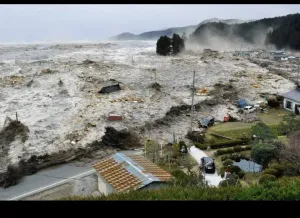

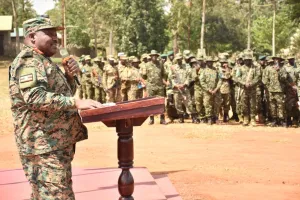
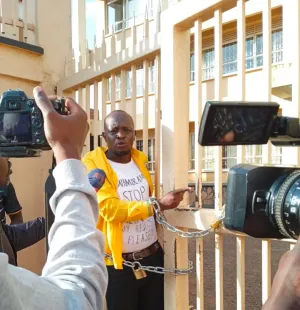





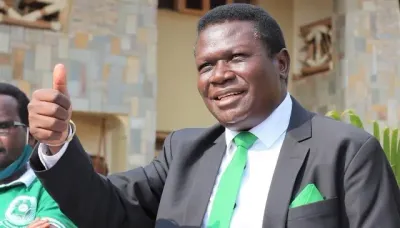
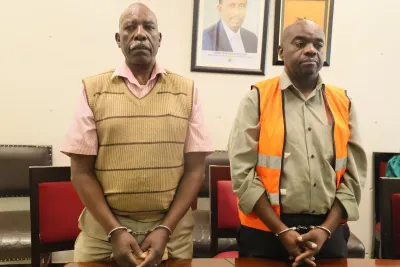
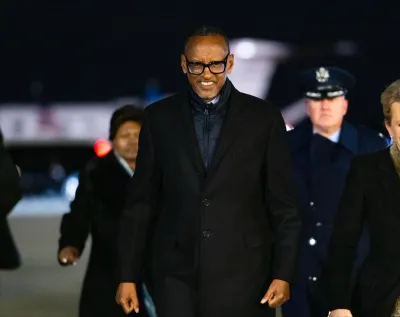
Ramathan Ggoobi
Ramathan Ggoobi is Policy Analyst, and Researcher. He lecturers economics at Makerere University Business School (MUBS) and has co-authored several studies on Uganda's economy. For the past ten years, he has published a weekly column 'Are You Listening Mr. President' in The Sunrise Newspaper, Uganda's Leading Weekly
Leave a Comment
Your email address will not be published.